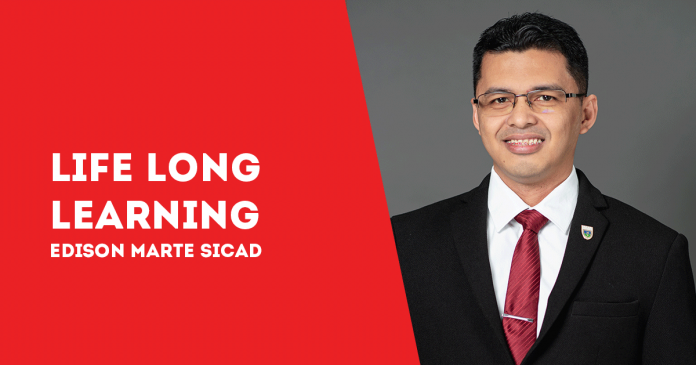
BY EDISON MARTE SICAD
“Are you planning to follow a career in Magical Law, Miss Granger?” asked Scrimgeour. “No, I’m not,” retorted Hermione. “I’m hoping to do some good in the world!” –J.K. Rowling, Harry Potter and the Deathly Hallows
THE CHAPTER on Human Relations in The Civil Code of the Philippines (Articles 19–36) gives us an idea about an individual’s responsibility, accountability, and liability to others.
In today’s column, allow me to share the following three (3) articles (Articles 19, 20, and 21) in relation to work ethic or to the importance of individual work for personal development and social progress. The said three (3) articles would remind us that our freedom to express our individual rights has personal consequences. In a sense, a person’s conduct has legal implications, to wit:
Article 19. Every person must, in the exercise of his rights and in the performance of his duties, act with justice, give everyone his due, and observe honesty and good faith.
Article 20. Every person who, contrary to law, willfully or negligently causes damage to another, shall indemnify the latter for the same.
Article 21. Any person who willfully causes loss or injury to another in a manner that is contrary to morals, good customs or public policy shall compensate the latter for the damage.
I have worked as a teacher for more than a decade in a private school. Currently, I am working in the government, as a court legal researcher in the Hall of Justice.
Time and again, I would encounter people who needed much help in processing certain documents or clarifying some policies. I learned that there is a way to be humble and assertive at the same time. And to some degree, work, as taught by St. Escriva, can be a means of sanctification.
Exemplary Public Service: this is the ideal and noble part of working. The other interesting part is office politics. As tradition and hidden rules blend with laws and job descriptions, an employee must—in order to thrive and not just survive—apply in the workplace professionalism and camaraderie with principle-centered mindset.
Why we work: some insights
1. Almost all teachers, before passing the licensure exam, would teach in a private school, mostly in the elementary or high school level. After passing the said exam, they would transfer, preferably to a government university. Then, the race towards a master’s and doctorate degree commences. Sadly, such professional growth had morphed into a “thesis-for-sale” business.
2. On a positive note, many distinguished professionals have expressed their gratitude to their elementary or high school teachers due to the latter’s guidance and inspiration. These are the teachers who would go to class, give excellent discussions, and return diligently the students’ papers graded with precision and compassion. The same teachers would sacrifice a better-paying job for the sake of his or her students. I deeply admire this kind of dedicated heroic work. And I am embarrassed by the way we treat them: we, who have better-paying jobs and them, who have the power to exploit the education sector.
3. Before, I don’t believe in the concept of ideal work, that work can be ennobling to the employee. For we all work as a consequence of sin. We labor as a form of punishment. But I was mistaken. It is hard to believe, but now, I find myself in a job that is truly fulfilling and, taking from Maslow’s Hierarchy of Needs, a job that can lead to Self-transcendence.
4. This realization is so profound that, looking back twenty years ago, the younger version of me would not be able to understand. I look forward to the challenges of my daily work as a court legal researcher. The learnings are so visceral that new knowledge becomes an embodied experiential element for continued growth.
5. At this moment, after surviving for more than 15 months of working without receiving a salary (delayed due to some unforeseen events), I feel so invincible that any difficulties in the future would be nothing but a mere simple to-do list to be checked in a nonchalant manner.
6. Lastly, I am working with others and for others to realize my goals in life. Part of this of course is to serve the people to the best of my ability. I hope that my aim for personal excellence will also benefit the community; that my work becomes an inspiration to others; that my service to others help me to take good care of myself; and that my conduct as an employee would strengthen the trust of the people to our government.
“Ethics, too, are nothing but reverence for life. That is what gives me the fundamental principle of morality, namely, that good consists in maintaining, promoting, and enhancing life, and that destroying, injuring, and limiting life are evil.” – Albert Schweitzer, Civilization and Ethics/PN







